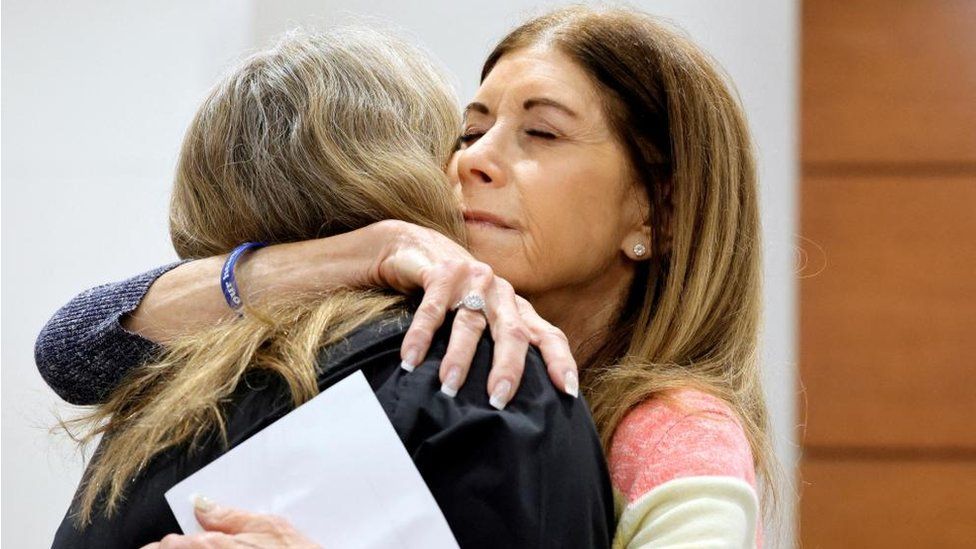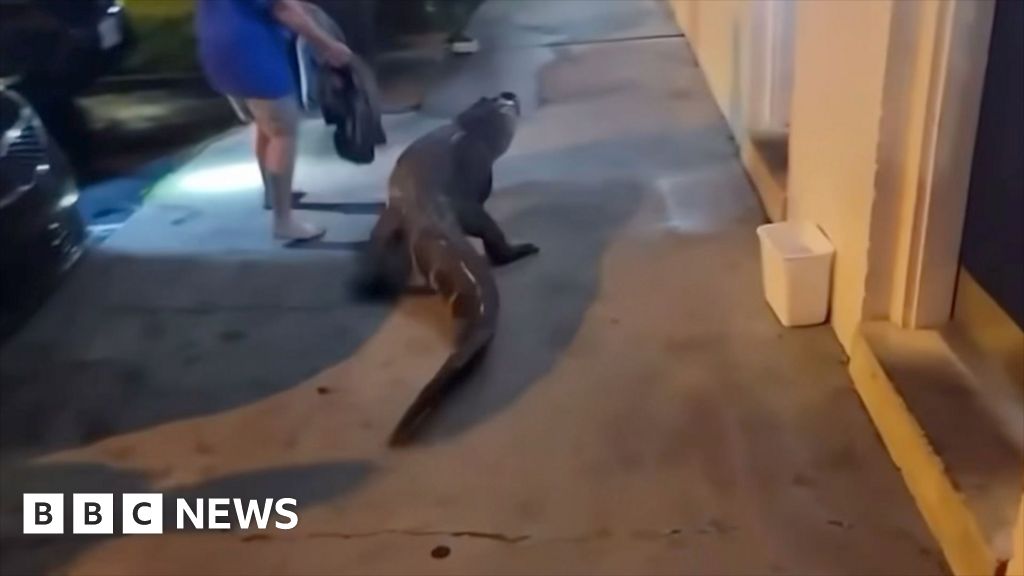ARTICLE AD BOX
 Image source, Reuters
Image source, Reuters
Family members of victims vented their anger that the gunman was spared the death penalty
By Bernd Debusmann Jr
BBC News
The gunman who killed 17 people at Marjory Stoneman Douglas High School in Parkland, Florida, has been sentenced to life in prison without parole.
A jury last month recommended the defendant be spared the death penalty, in a decision that took many by surprise.
Ahead of the sentencing, family members of the victims delivered emotional messages of grief and anger.
The gunman pleaded guilty in October last year to the 2018 murders.
During emotional statements at the sentencing hearing over the course of two days, family members of the victims addressed the murderer - 24-year-old Nikolas Cruz - without ever using his name.
"I hope your every breathing moment here on earth is miserable," said Theresa Rabinovitz, whose 14-year-old granddaughter, Alyssa Alhadeff, was among those killed.
The jury's decision on 13 October to sentence the killer to life in prison rather than execution outraged many Parkland relatives, some of whom voiced their anger at the sentencing hearing.
Meghan Petty, the sister of 14-year-old victim Alaina Petty, said she felt "betrayed" by the jury and the justice system.
"He has escaped this punishment because a minority of the jury was given the power to overturn the majority decision made by people who were able to see him for what he is - a remorseless monster who deserves no mercy," Ms Petty was quoted as saying by the Washington Post.
Throughout the statements, the masked and bespectacled gunman could be seen looking down or directly at those speaking, showing little visible emotion. He was 19 years old when he entered the school and opened fire using a legally purchased rifle. In addition to the 14 students and three staff members who were killed, 17 people were wounded.
Over the course of a three-month trial, prosecutors sought to prove the crimes were "cold, calculated and premeditated" and met the state's definition of "aggravating factors" warranting execution.
The defence team argued that their client was plagued by mental illness, partly as a result of being exposed to drugs and alcohol while still in his mother's womb.
In court, some family members directed their anger at the defence team, prompting public defender Melisa McNeill to unsuccessfully ask the judge to impose restrictions.
"Karma will eventually catch up to you all," said Patricia Oliver, whose son Joaquin was killed in the incident.
The shooting reignited the US debate over guns, and prompted a wave of youth-led activism that gained national attention, but failed to achieve its legislative goals such as a ban on assault weapons and high-capacity magazines.
Parkland families angrily rebuke gunman in court

 2 years ago
45
2 years ago
45








 English (US) ·
English (US) ·